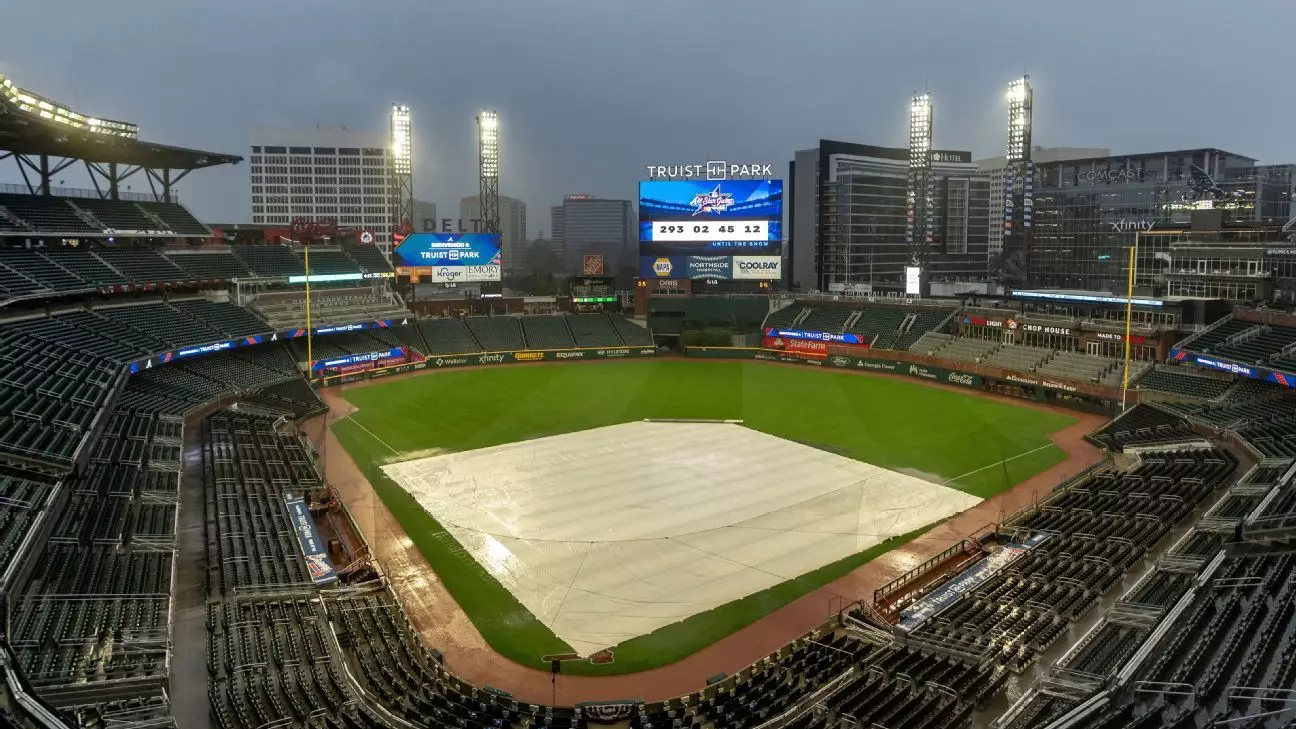The Major League Baseball landscape can change in an instant, particularly as teams vie for critical postseason opportunities. This was starkly illustrated when the much-anticipated final two games of the New York Mets and Atlanta Braves series were abruptly postponed due to heavy rains linked to the impending Hurricane Helene. The decision, made just hours before the scheduled game time, threw a wrench into what was already a tightly contested wild-card race, pushing competition to new levels of urgency and unpredictability.
The Stakes Are High: A Clash of Titans
As the Mets faced a formidable challenge against the Milwaukee Brewers over the weekend, and the Braves prepared to confront the Kansas City Royals, the pressure escalated significantly. The implications of these matchups are monumental; both teams are clawing for two coveted playoff spots. The Mets, standing at 87 wins and 70 losses, clung to a slim half-game lead over the Arizona Diamondbacks, while the Braves trailed closely behind at 86 wins and 71 losses. The wilderness of deciding who will emerge into postseason play underscores the stakes involved.
Mets manager Carlos Mendoza said it best when he pointed out that his team’s focus must now shift towards their upcoming series. With the Brewers fresh off their title as NL Central champions, Mendoza emphasized the need for his players to control the things they can influence, a mantra that can resonate well during such an intensity-laden phase of the season.
Mother Nature’s influence on sporting events, particularly in baseball, is often a subject of debate and concern. The decision-making process that surrounds postponements can be controversial. In this specific case, the Met’s manager mentioned that they were ready to compete but ultimately had to adapt to the unpredictable weather conditions. The two games were called off just under two hours before their scheduled start, leaving fans and players frustrated yet understanding of the circumstances. Despite their preparedness, neither the team nor Major League Baseball seemed inclined to adjust schedules proactively in anticipation of the hazardous weather.
Weather delays can, however, also provide unexpected advantages. For the Mets, the postponement might offer well-deserved respite for fatigued players, particularly in the bullpen. Mendoza noted that having additional rest could benefit players who might require that slight edge in durability and performance as the season nears its climax.
As the regular season encroaches upon its last days, the mere idea of a doubleheader looming on the horizon adds layers of anxiety and excitement to both teams’ aspirations. Notably, the prospect of rescheduling creates a unique challenge involving rapid travel and condensed game schedules for the Mets, who must quickly regroup and pivot to accommodate a possible doubleheader in Atlanta while keeping playoff aspirations front and center.
The strategies involved in executing a successful doubleheader are complex; from managing player fatigue to optimizing pitching rotations, in-game decisions become more critical than ever. Meanwhile, the Diamondbacks stand as keen observers to the tumultuous end of the season, their fortunes intertwined with those of the Mets and Braves. Arizona’s own schedule against the San Diego Padres will certainly add to the unfolding drama.
The happenings of this doubleheader scenario are emblematic of the wider chaos within the wild-card race this season. As teams jockey for their playoff positions, external factors like weather combine with the internal desire to win, marking a chaotic end to a compelling season. The outcomes of the coming series will not only affect the Makeup of the National League playoffs but also test each player’s resolve, adaptability, and determination. With that focus and resilience, it’s certain that regardless of the delays, the Mets and Braves will charge forward with renewed purpose as they face their ultimate test: the pursuit of postseason glory.


Leave a Reply